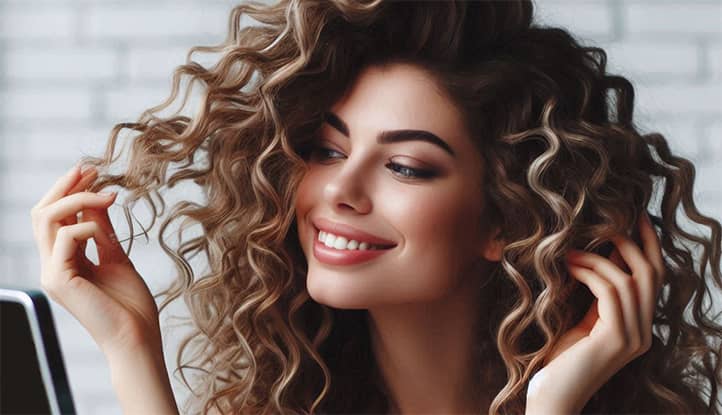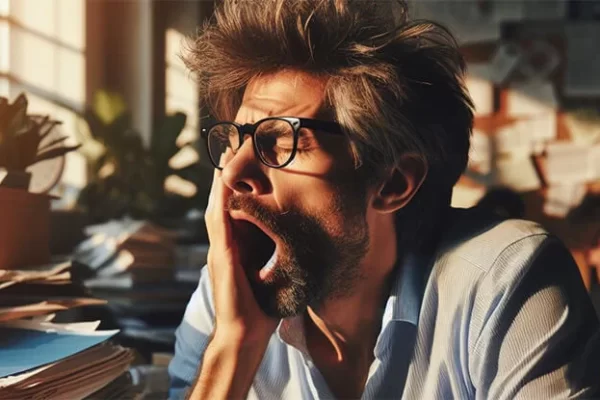In the fast-paced rhythm of modern life, filled with constant deadlines, informational noise, and high demands, stress levels continue to rise. Many people face stressful situations daily, both at work and in personal life, gradually accumulating tension that impacts physical and mental health. Due to excessive workloads and the constant pursuit of results, there often isn’t enough time for recuperation and emotional balance, leading to burnout, increased anxiety, and other mental disorders.
One effective way to reduce stress levels is to introduce self-care rituals. Self-care isn’t just about appearance; it’s a comprehensive set of practices that allow one to focus on personal needs, giving the body and mind a chance to rest and recover.
This becomes especially relevant during periods of heightened stress, when it’s necessary to reduce anxiety and achieve inner peace. Self-care helps people slow down, spend time on their body and mind, which ultimately reduces stress and increases overall happiness.
Self-care is also seen as a way to boost self-esteem and confidence. By taking care of oneself, a person starts to treat themselves better, appreciate their appearance, and value their personality. Care rituals are perceived not only as a necessity but also as a pleasant part of the day that allows one to distract from negative thoughts and engage in something enjoyable.
Hair care, especially for curly hair, holds a special place among self-care rituals. Hair is not only an important aspect of appearance but also a symbolic element that affects self-identification, confidence, and personal attractiveness. Curls have always been associated with femininity, beauty, and a certain charm, so caring for them can bring not only external satisfaction but also emotional joy. For many women, the time they dedicate to hair care becomes a true relaxation ritual, a moment for themselves to forget about daily worries and enjoy the process.
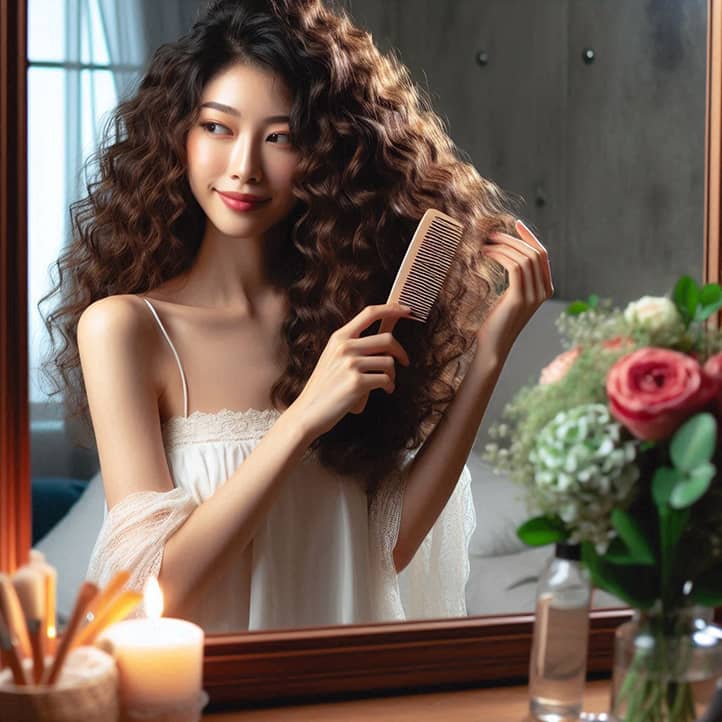
The Psychology of Self-Care: Why Does Hair Care Matter?
Self-care rituals have long been recognized as essential for supporting mental health and emotional balance. They help foster positive self-attitude and increase confidence. Daily hair care—whether it’s brushing, washing, or applying products—helps set a calm rhythm, reducing anxiety and tension. When we pay attention to our appearance, it gives us a sense of control and order, which is very important in a life filled with stresses and unpredictability.
The hair care process can be seen as a form of meditation: it provides an opportunity to be “here and now,” focus on pleasant sensations, and forget about everyday worries. A set self-care ritual creates a psychological habit of caring for oneself, which fosters a positive emotional background. This helps to reduce stress levels, increase concentration, and even improve mood.
How Does Regular Hair Care Help Develop the Habit of Self-Care?
Hair care is just one aspect of self-care, but it is an important part of building an overall self-care habit. Regularly washing, applying conditioner, and massaging the scalp all contribute to developing the habit of dedicating time to personal needs. When such practices become regular, they automatically integrate into the daily routine, adding structure and stability.
The habit of self-care starts with small steps: hair care, applying moisturizer, or light exercise. Over time, these rituals transform into a strong habit that encourages a better understanding of personal needs and the ability to set aside time for relaxation. Self-care becomes not only an external display of care but also a means of nurturing inner well-being.
Boosting Self-Esteem Through Appearance Care
Appearance is one of the factors that affect self-esteem. When we feel attractive, it boosts our confidence, and this confidence, in turn, positively influences how we perceive ourselves and how others perceive us. Hair care helps create an image that reflects our inner “self,” thus ensuring harmony between appearance and self-perception.
Hair care becomes especially important for people with curly hair, which requires additional attention and a special approach. When a woman is satisfied with the state of her hair, she feels more confident, which positively impacts her behavior, communication, and even productivity. Taking care of oneself encourages more openness to social interactions, easier adaptation to new situations, and acceptance of oneself with all unique traits.
Thus, hair care rituals significantly impact mental well-being: they calm, help organize thoughts, enhance self-esteem, and cultivate a sustainable habit of self-care.

Why Curls Are Special: The Emotional Value of Curly Hair
Curly hair has deep historical and cultural roots. In various cultures, it has often symbolized strength, freedom, and uniqueness. For example, in ancient Greece and Rome, curly locks were associated with divine figures and heroes. African tribes have long viewed the natural texture of hair as a marker of identity and pride. In many cultures, curls are perceived as something natural and distinctive, making their wearer stand out. This historical legacy has endured to the present day, giving curly hair a certain symbolic status.
Many people with curly hair feel a special emotional connection to their texture, as it often highlights their individuality and sets them apart from others. Curls can symbolize a free spirit, a creative nature, or even evoke associations with childhood if the curls appeared at an early age. For many, caring for their curls becomes not just an element of appearance but also a way to preserve personal history, uniqueness, and cultural heritage.
The Impact of Curly Hair on Self-Identity and Confidence
Curly hair often becomes a significant part of self-identity, influencing how a person perceives themselves and how others perceive them. Those with curls may feel a special pride in their appearance, as curls are a less common and more noticeable trait. However, due to its unique structure, curly hair requires more care, making it an important aspect of life for many.
Choosing the right care products, such as specialized shampoos for curly hair, becomes an act of self-care and acceptance of one’s uniqueness. This choice strengthens self-respect and self-esteem, as the individual acknowledges their needs and embraces their natural appearance. Rejecting the pursuit of “standards” and aiming to highlight one’s natural beauty fosters a strong sense of confidence.
The Role of Curl Care in Emotional Stability and Mental Balance
Taking care of curly hair can be more than just a routine—it can serve as a soothing ritual or meditation. Because of its structure, curly hair requires extra attention, which demands more time and patience. For example, the process of detangling, applying moisturizing products, and defining curls allows one to focus on themselves and their sensations, which helps reduce stress and tension.
Regular curl care provides an opportunity to carve out time for oneself and spend it calmly and mindfully. For many, this ritual becomes a source of emotional stability and satisfaction. Seeing the results of their efforts—beautiful, well-maintained curls—boosts endorphin levels and creates a sense of fulfillment, positively impacting overall emotional well-being.
Curly Hair as a Symbol of Freedom and Individuality
Curls are often associated with a free spirit, independence, and originality. With their informal appearance and natural volume, they can symbolize lightness and spontaneity. For many, curls become an external expression of their worldview, a desire to live freely and follow their own principles. Caring for curly hair helps people embrace their uniqueness and individuality, without the desire to conform to societal beauty standards.
This acceptance of curls is especially significant in cultures where there has long been pressure on those with “non-standard” hair. Now, as curls increasingly become a symbol of embracing natural beauty, many women and men have begun to value their hair, viewing it as an expression of their personality and freedom from stereotypes.
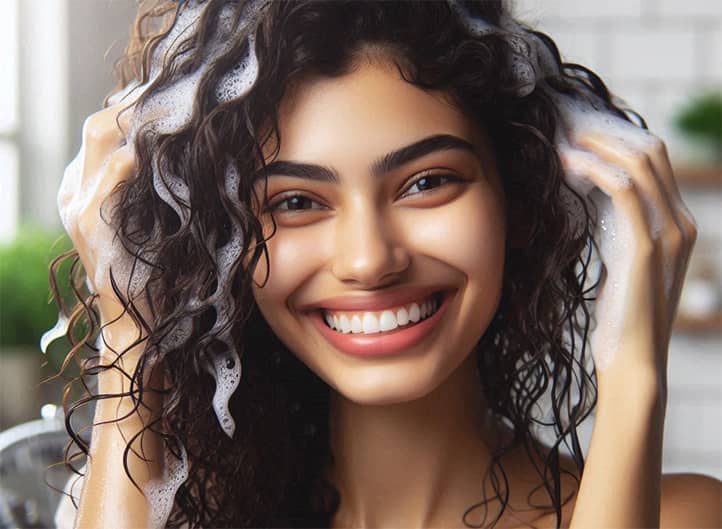
How Hair Care Reduces Stress Levels?
Hair care, particularly when it includes scalp massages, is a powerful way to reduce stress by activating sensory receptors. Scalp massage stimulates blood circulation, improving overall well-being. The physical contact with hair during shampooing, conditioning, or applying treatments also creates a calming effect, as touch has a therapeutic impact.
Additionally, the use of warm water during hair washing promotes relaxation, as it helps relieve muscle tension and activates the parasympathetic nervous system responsible for a state of calm. Combined with the pleasant aromas of hair care products, such as shampoos with natural oils for curly hair, this creates the effect of aroma and sensory therapy.
Hair Care Rituals as Meditation and Relaxation
Hair care rituals can be likened to mindfulness practices, which are an important tool in managing stress. During these procedures, individuals focus on the process, forgetting about daily worries. In such moments, paying attention to the touch, texture of the hair, or even the scent of the shampoo helps shift focus from negative thoughts to pleasant sensations.
When hair care becomes a regular ritual, it introduces predictability and order into life, which is crucial for reducing anxiety. The regularity of actions provides a sense of control over one’s life and helps the body adapt to positive changes. In these moments, self-care becomes a tool for restoring inner balance.
Positive Emotions from Results as a Stress-Relief Factor
The results of hair care—clean, well-maintained hair that looks healthy and beautiful—trigger positive emotions that help reduce stress. Satisfaction from the outcome creates a sense of accomplishment, boosting dopamine levels—the hormone of happiness. This becomes a source of short-term but powerful emotional uplift.
This aspect is particularly significant for people with curly hair, which requires more time and attention. When care yields the desired result—voluminous, shiny, and well-defined curls—it becomes a source of pride and satisfaction. The feeling of being capable of managing care, even if it is challenging, boosts self-esteem and helps cope with everyday stress.
The Social Aspect: How Great-Looking Hair Enhances Confidence
Well-maintained hair contributes to increased self-confidence, reducing the impact of stressful situations in social interactions. A person who knows their hair looks great feels more self-assured when communicating with others. This is especially important for those who often experience social anxiety or worry about their appearance.
Good-looking hair allows individuals to focus on what matters without being distracted by internal doubts. Confidence helps ward off negative thoughts, which is crucial for emotional comfort. Thus, hair care is not just about aesthetics but about creating a positive image that helps reduce stress in social situations.

Recommendations for Stress-Relieving Curly Hair Care
Curly hair requires special care, and selecting the right shampoo is a key step in maintaining its health and beauty.
- Avoid harsh components: Stay away from shampoos containing sulfates (SLS, SLES), parabens, and other aggressive chemicals that dry out hair and irritate the scalp.
- Moisturizing ingredients: Look for shampoos with natural oils (coconut, argan), glycerin, or aloe vera to deeply moisturize curls.
- Choose based on hair type: Consider the porosity and condition of your hair. For instance, high-porosity hair benefits from shampoos with added protection against breakage.
- Special formulas: Opt for shampoos specifically designed for curly hair. They address the needs for elasticity and hydration, helping maintain curl shape.
- Aroma and texture: A pleasant scent and comfortable texture make hair care not only effective but also enjoyable.
Key Steps in Curly Hair Care to Maintain Healthy-Looking Hair
Proper care involves several stages, each crucial for the health and beauty of your curls.
- Gentle washing: Use a shampoo that cleanses without stripping hair of its natural protection. Rinse with warm water, avoiding hot water, which can dry out curls.
- Conditioner: Apply conditioner after every wash to detangle and moisturize your hair. Conditioners with proteins and oils strengthen curls and enhance their elasticity.
- Masks: Use moisturizing or restorative masks once a week. These deeply nourish the hair and shield it from environmental damage.
- Gentle drying: After washing, avoid rubbing your hair with a towel. Instead, wrap it in a soft cloth or use the plopping method to preserve curl definition.
- Styling: Apply creams or gels for curly hair to help retain their structure.
Recommendations for Mood-Boosting Procedures: Scalp Massage, Aromatherapy, and More
Hair care can be more than just a routine—it can become a source of joy if you include practices that positively impact your emotional well-being.
- Scalp massage: Light circular movements with your fingers improve blood circulation, stimulate hair growth, and promote relaxation. Use natural oils, such as coconut or almond oil, for added benefits.
- Aromatherapy: Add a few drops of essential oils like lavender, ylang-ylang, or rosemary to your hair care products or masks. These scents have calming properties and help reduce stress.
- Warm treatments: A warm towel wrap after applying a hair mask creates a spa-like relaxation effect. It not only enhances the absorption of active ingredients but also provides a comforting sensation.
- Music or meditation: Play soothing music or practice breathing exercises during your hair care routine. This creates a harmonious atmosphere and helps you focus on yourself.
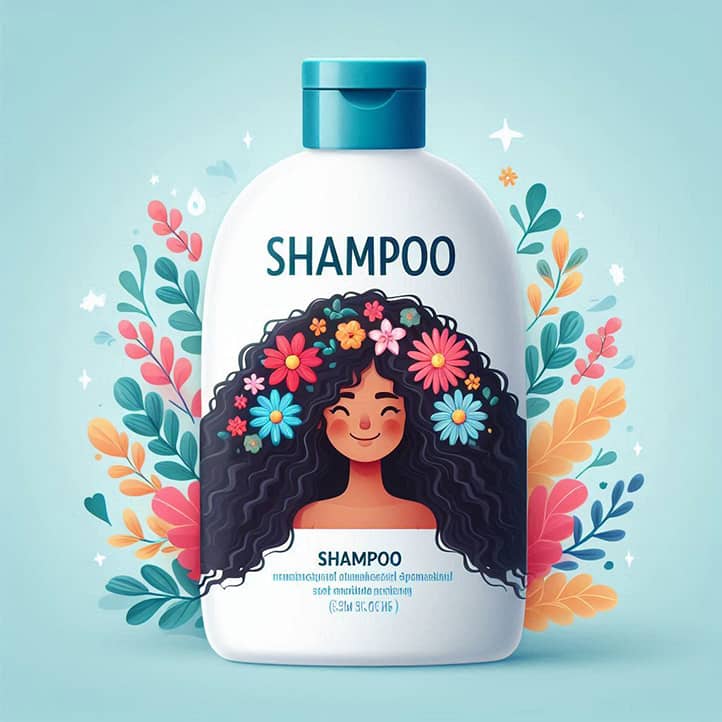
Shampoo for Curly Hair as Part of a Daily Relaxation Ritual
A professional shampoo for curly hair is not just a cleansing product but an essential tool for maintaining healthy curls and emotional balance.
- Curl-friendly formula: Specialized shampoos contain natural components like argan, jojoba, or coconut oils, glycerin, panthenol, and herbal extracts. These ingredients help retain natural moisture and protect hair from breakage.
- Hydration as the foundation of care: Curly hair’s porous structure makes it prone to dryness. Shampoos with deep moisturizing properties ensure softness, smoothness, and a healthy look.
- Anti-stress effect: Shampoos for curly hair often have a pleasant fragrance and gentle texture, contributing to relaxation during hair washing. This helps not only with hair care but also in relieving emotional tension.
How Choosing Quality Products Can Enhance Psychological Comfort
The process of selecting and using a shampoo goes beyond a mundane task; it’s a significant aspect of self-care that positively affects your mental state.
- Mindful choice: Paying attention to selecting a shampoo gives a sense of control. Choosing a product tailored to your needs boosts self-esteem.
- Self-care ritual: Using high-quality shampoo becomes part of a personal ritual associated with pleasant emotions. It signals to your mind that you are focusing on your well-being.
- Mood improvement: The improved appearance of well-maintained hair adds confidence. This enhances self-perception and outlook on life.
How Shampoo Becomes a Tool for Personal Happiness and Harmony
Hair care with the right shampoo can be a source of joy and harmony when approached with intention.
- Sensory pleasure: The shampoo’s fragrance, the gentle lather enveloping your hair, and the scalp massage create a comforting sensation that restores emotional balance.
- A moment for yourself: Hair care is a time dedicated solely to you. This moment of solitude and self-care is a crucial part of mental well-being.
- A symbol of care: Using a shampoo designed specifically for your curls shows that you care for yourself. This fosters inner harmony and contributes to feelings of happiness.

Conclusion
Caring for your hair, especially curly locks, is not only about maintaining their health and beauty but also a significant aspect of stress management. For many, this process becomes a form of meditation. Choosing a quality shampoo and using the right products enriched with natural ingredients provides a sense of self-care, which is vital for psychological comfort.
Self-care rituals are incredibly important for our emotional state. Each step of this process, from selecting a shampoo to massaging your scalp, can be a moment of rest and reflection, allowing you to focus on your needs and restore inner harmony. This is especially crucial in today’s world, where stress often prevails. Simple acts like washing your hair or enjoying aromatherapy during care routines become not just necessary actions but opportunities to regain emotional balance and reconnect with yourself.
Emphasizing the importance of these rituals, it’s clear that they not only affect external results but also form the foundation of internal comfort. Taking care of yourself through hair care helps carve out time for relaxation and reminds you that your physical and psychological well-being are in your hands. Therefore, it’s essential to cherish these moments, which bring satisfaction and reduce stress, fostering our overall harmony.
Don’t hesitate to make time for yourself, even in everyday routines like hair care. This seemingly simple habit holds the potential to bring inner happiness and balance. Within it lies not just the desire to look good but also the aspiration to feel better and regain strength. Take care of yourself, and let hair care become an opportunity to find balance and enjoy every moment.
